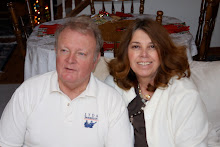It is interesting that Burke was inspired by Dewey in his educational philosophy in his attention to progressive education as they were both considered progressive but in such different ways(Enoch 277). His jump to theoritizing on ways that "...education could promote peace and mitigate war," mark him as a man of his times in a post World War II time, encouraging criticl reflection, rather than argumentation(Enoch 279). Burke would encourage "...distrustful admiration of all symbolism, and ... questioning "...the many symbolically-stimulated goads that are now accepted to often without question" (286). He seems to asking students to observe, distance themselves and respond to text and real life situations with great care. While this would seem to imply an inability to act Enoch says instead that "Reflection is a way to act on and approach the world" (291)). The attitude of "patience and withdrawal"that he advocates seems contradictory, yet wise.
I prefer Fulwiler's approach to education because Burke's wisdom only goes so far. It just seems like a first step. Fulwiler says "Expressive writing and speaking continue[s] to make passive classrooms active" (handout on Toby Fulwiler with excerpts From Writing Across the Michigan Tech Curriculum, 1). In a related sense, Palmquist, Kiefer, Hartvigsen and Goodlew found that students in a computer classroom had more action going on than a traditional classroom, with "a higher level of interaction with students"... and these interactions were "initiated by students and focused directly on their writing" (258). This shows that a value is placed in pedagogy on active participation of students physically and socially. I like John Dewey's focus on education having "psychological insight into the child's capacities, interest, and habits, as a "process of living" but find that like Burke's reflection, it is a limited philosophy in terms of action to prevent wars, as was his ideal (handout on John Dewey with excerpts from My Pedagogic Creed [1896},1). Dialogue such as United Nations events, Presidential Summits and media debates on policy seem to shape opinions moreso. Berlin points out that "The business of cognitive psychology is to enable us to learn to think in a way that will realize goals, not deliberate about their value" (672). This certainly suggests that the psychology of learning when cognitive might be able to be goal oriented, perhaps a goal of action to prevent wars, rather than deliberate on the rightness or wrongness of war. I believe that argumentation at some point, accompanied by and interspersed with reflection, will produce better results, as it more interactive and goal oriented than simply reflection on a position.
Berlin, James. "Rhetoric and Ideology in the Writing Class." Miller, Susan Ed. The Norton Book of Composition Studies. New York: W.W. Norton & Company, 2009. 667-684. Print.
Enoch, Jessica. "Becoming Symbol-Wise: Kenneth Burk's Pedagogy of Critical Reflection. College Composition and Communication, Vol. 56,No. 2 (Dec., 2004). 272-296. Reprinted by NCTE with JSTOR.
Palmquist, Mike, Kate Keifer, James Hartvigsen and Barbara Goodlew. "Contrasts: Teaching and Learning about Writing in Traditional and Computer Classrooms." Sidler, Michele, Richard Morris and Elizabeth Overland Smith, eds. Computers in the Composition Classroom: A Critical Sourcebook. Boston: Bedford/St. Martins,2008. 251-270. Print.
Thursday, March 18, 2010
Subscribe to:
Post Comments (Atom)




I also like Dewey's philosophy, but also think that it lacks certain instruction. People can interpret some of his ideas in many different ways. In class my group discussed the idea of trade-schools and vocational tracks, which Erin said Dewey was actually against. So, although he supported educating the whole child, your point that there should be more action involved in his philosophy is valid.
ReplyDeleteDewey did receive criticism for not being more specific in his theories. And the fact that his theories were so general in some cases, as Autumn said, made it easier to interpret them in extreme ways that were detrimental to educational results. As I wrote in my blog this week, Dewey did argue for critical thinking that included skepticism when confronted with "truth." He would have seen arguing as part of that critical thinking process. But Dewey also didn't see one way of doing things, which probably explains his lack of specificity. It is problematic in the practical application, which was ironically his other main focus.
ReplyDeleteI also found Burke's emphasis on reflection rather than conventional action interesting. It makes sense when you consider how much he viewed the world in terms of symbols. It seems like viewing the world in this way required a certain amount of distance. How would you perceive that a dream is a symbol of symbol of reality if you were active and bound in that reality? Enoch does state that Burke's way of thinking is an active perception of the world, but it is interesting that you may have to be somewhat removed from that same world in order to experience a Burkian perspective.
ReplyDeleteReally Dewey was much more contemporary feeling than I expected him to be. Burke was out there in his thinking and inspiring. Dewey does have a lot of good ideas but both he and Burke can be vague.
ReplyDelete